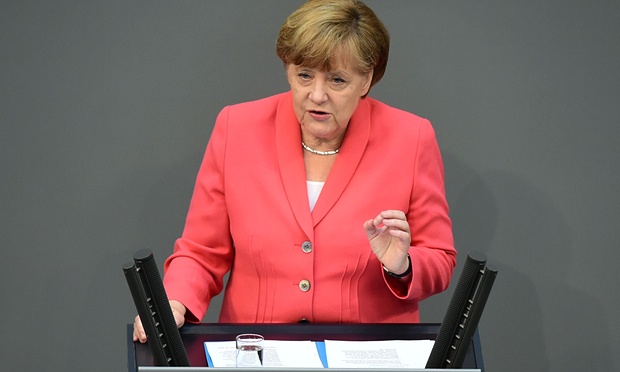By Holly Ellyatt, CNBC
With the ink not even dry on the third bailout for Greece, Germany is already grumbling about the deal, raising fears that Berlin is about to put the boot in the latest financial rescue – although the German government told CNBC that it was not rejecting the bailout.
Although the technical details of a third bailout were agreed between Greece and its lenders earlier this week, national parliaments in the euro zone, including Germany, need to approve the 85 billion euro deal before it can be implemented and the money released.
On Wednesday, there were signs of tension in Germany over developments in the Greek bailout plan, saying it was “insufficient.”
Germany’s finance ministry outlined its concerns in a paper circulated to its euro zone counterparts just hours before the Greek parliament was due to debate the deal, according to a Financial Times report.
These include delays in planned reforms, debt sustainability and the role of the International Monetary Fund (IMF) in the latest bailout, which has participated in the past two Greece aid packages.
German finance ministry spokesman Juerg Weissgerber told CNBC on Thursday that the German government was not rejecting the Greek rescue program.
He said in an emailed statement that Germany had made “a thorough examination of the draft of the MoU (Memorandum of Understanding, the draft bailout agreement). As part of this examination process, we have some open questions that need to be addressed in the Eurogroup (of euro zone finance ministers who are meeting on Friday.”
“The Bild (newspaper) headline “German government rejects Greek rescue program” is wrong. We deny that,” Weissgerber added.
The minsters from the 19 countries that use the euro are due to discuss whether to approve the deal – or potentially grant Greece more bridge financing to give negotiations more time – an option looking increasingly likely given German misgivings over the deal.
Deal delay?
On Thursday, German Deputy Finance Minister Jens Spahn told German radio that it was important for Berlin that the IMF stays on board. The IMF has appeared to waver over the latest deal, however, saying that it will not take part unless debt restructuring for Greece is part of the deal – something Germany opposes for fear that it will set a precedent for other indebted euro zone countries.
In his radio interview, Spehn reiterated that a debt restructure – or “haircut” — was not legal, but Germany could be willing to talk about extending Greek debt maturity.
As it is, however, German lawmakers could potentially reject the deal. On Wednesday, Greek newspaper Ekathimerini reported that the plan could be held up by German lawmakers. The report, to two unnamed party officials, said that German Chancellor Angela Merkel was facing resistance within her party to holding a lower-house vote on Greece early next week for “political and practical reasons.”
Valid concerns
The latest wranglings over the bailout by Germany are nothing new, with the country being the hardest taskmaster with Greece over austerity and reforms particularly as it has been the country’s largest euro zone lender. As such, there is widespread public resistance to giving Greece too much leeway in terms of finances.
For Greece though, more financial aid is desperately needed if it’s to meet its ongoing debt obliations. Either a bridging loan or bailout deal for Greece is needed within the next few days as it has a 3.2 billion euro debt repayment due to the European Central Bank (ECB) on August 20.
Finalizing a deal by then looks increasingly tenuous, analysts believed. Craig Erlam, senior market analyst at currency trading company OANDA, told CNBC Thursday that “the deal is still far from done” and that Germany had valid concerns.
“The concerns raised by Germany are actually quite reasonable, particularly those around debt sustainability and IMF involvement. The lack of the latter makes a deal harder to sell to creditor lawmakers. The problem is, it doesn’t seem to be offering a solution.
“With the IMF not expected to decide on its involvement until the Autumn, we cannot write off the possibility of a bridging loan. This will not only enable the IMF to decide on its own involvement and parliaments to therefore make an informed decision based on all the facts, it will
give creditors time to come up with a solution to the debt sustainability issue. This could resolve two of the three concerns raised by Germany.”



















